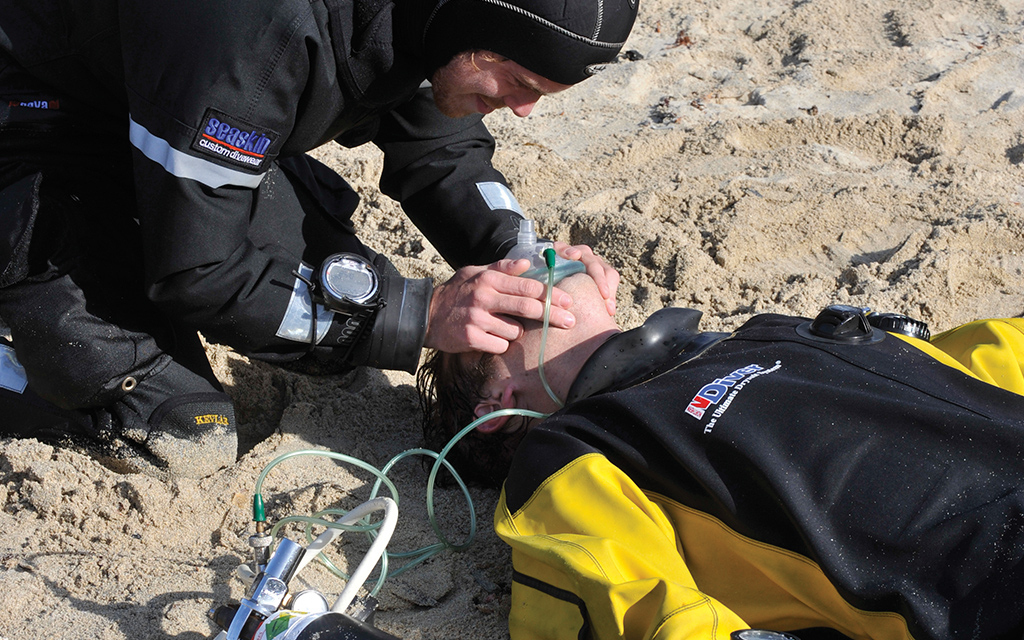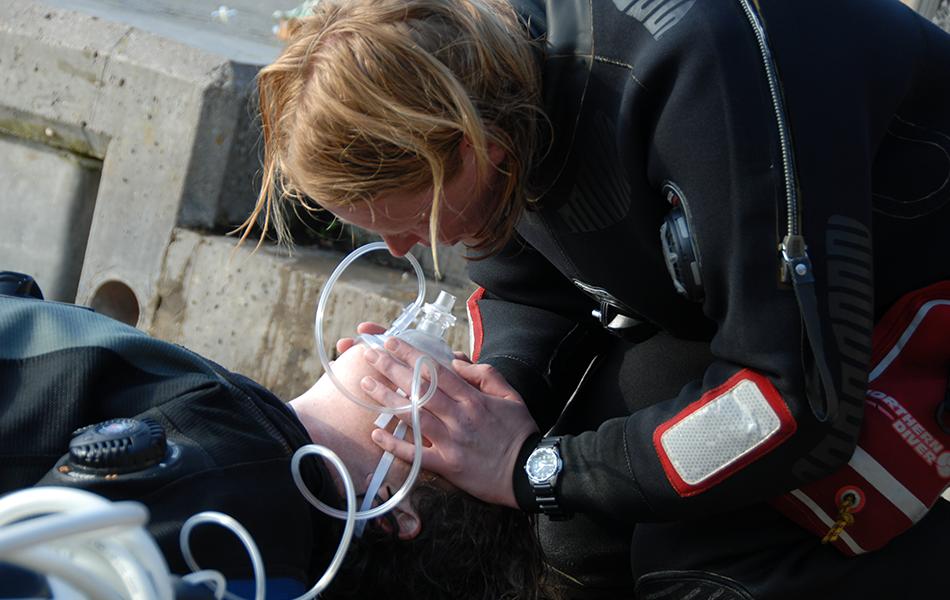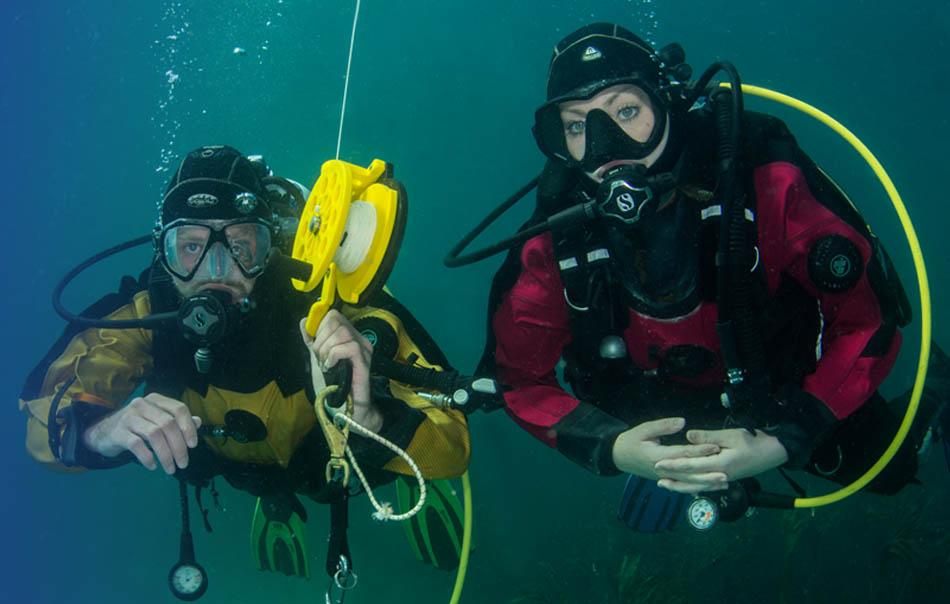
Diver training identifies a number of injuries that can arise from diving incidents, mainly to highlight the importance of training and practice to avoid them. Because of the serious nature of some of these, especially decompression illness (DCI), the value of 100% oxygen as a first aid measure has long been recognised.
However, oxygen in the wrong circumstances can be counter-productive, for example the risk of oxygen toxicity is to be considered by nitrox divers. Additionally, and presumably, as a consequence, oxygen is considered a drug and subject to appropriate controls. In the UK, thanks largely to the work of Jim Corry and Trevor Davies some 40+ years ago, the value of therapeutic oxygen for diving injuries was accepted and appropriately trained divers were allowed to administer oxygen to divers for diving-related injuries. This is not always the case in other countries and recently we have had a number of enquiries from members in those countries asking for advice and guidance.
One of the key considerations is to balance the benefits of first aid treatment whilst managing the risks associated with the effects of breathing high concentrations of oxygen.
Benefits
A critical consideration addressed in the early days was the reduction in damage that occurred prior to recompression treatment for DCI. It is important to also recognise that it is first aid only, and if O2 is administered then referral for medical advice is essential.
Mitigation
With a recognised benefit it was then important to consider the fact that people with certain existing medical conditions or the very young could be adversely affected by breathing high partial pressures of oxygen without proper medical monitoring. However, those particular groups would be excluded from diving due to age or their medical conditions and so a dispensation was agreed for administration to divers for diving-related injuries. Developing a recognised training programme was also central and key to acceptance, as was the development of dedicated oxygen administration equipment designed for and robust enough for the diving environment.
Training
Training in oxygen administration is a key skill recognised within BSAC training, and so important that it is now integral to the Dive Leader syllabus and a requirement for all instructors. The value of the skill is so important that training is open to Ocean and Sports Divers as well as a dedicated SDC (Ocean Divers should have been taught CPR skills prior to the course). The course can also be open to support teams such as boat coxswains, charter boat skippers and non-diving partners or parents etc. However, those without any diving training would need to receive additional foundation training in the recognition of diving injuries and CPR skills prior to the start of any O2 course (a non-member fee may apply).
Being able to explain the benefits of first aid oxygen for diving-related injuries goes a long way to minimise concerns raised over refilling oxygen cylinders for O2 sets. More helpful is the ability to show formal training and qualification in the necessary skills.
Finally, please don’t forget that if you do have to give oxygen, then it constitutes an out of the ordinary occurrence whilst diving - please report it. The information gathered in the incident report helps further evidence the continued value of the use of oxygen.
Think SAFE – Dive SAFE
Jim Watson
BSAC Safety and Development Manager
Not yet a BSAC member?
You can do this course by joining BSAC directly or joining your local club.
If you need a hand send your postcode to hello@bsac.com and we'll help you find the right scuba club for you. Or if you fancy a chat call us 0151 350 6226 (Mon - Fri, 9 - 5:30).

 Author: Jim Watson | Posted 26 Jan 2020
Author: Jim Watson | Posted 26 Jan 2020




